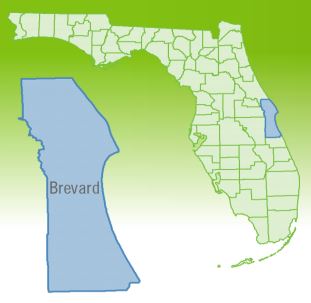Playing to Win: Strategies for Building Prosperous Agent Teams
Real estate professionals have weathered many storms and adapted accordingly, often by working harder and not necessarily smarter. For some agents, however...
By Katie O'Donnell Glaser
Real estate professionals have weathered many storms and adapted accordingly, often by working harder and not necessarily smarter. For some agents, however, creating a team has been the answer to better serving today’s consumer while maintaining the ever-elusive work-life balance. But while teams may be good for the agents involved, are they always right for the brokerage firm?
In the first of RISMedia’s Power Broker Webinar Series, “Play to Win: Developing, Managing and Recruiting Today’s Agent Teams,” four leading brokers shared their substantiated methods for team building. The webinar, which took place on Oct. 28, was sponsored by Bank of America Home Loans and moderated by John Featherston, president and CEO of RISMedia, and Verl Workman, founder and CEO of Workman Success Systems.
Broker panelists were Rei Mesa, president and CEO of Berkshire Hathaway HomeServices Florida Realty; Scott MacDonald, president of RE/MAX Gateway; Thaddeus Wong, co-founder of @properties; and Tracy Hutton, president of CENTURY 21 Scheetz.
Team Up: Why Two Heads Are Better Than One
During the webinar, panelists analyzed some of the advantages and disadvantages of agent teams in their respective companies. Think about the number of hats agents must wear to effectively and independently run their business. Conversely, by hiring an assistant to take on the administrative tasks like answering calls, processing paperwork and other office tasks, agents can focus on providing better service and generate more revenue to afford the assistant, and then some. Further, by adding other members, like buyer’s agents, listing agents, accounting, closing and marketing managers, agents could foreseeably produce even more sales and potentially get their life back.
On the flip side, some agents are hesitant to join the team movement as it would mean losing control and tasks wouldn’t be done the right way and service may suffer as a result. Add to that concerns about cost and the general complexities related to running a business, and you have enough to overwhelm and turn some agents the other way. However, some proponents of the team philosophy believe that the greatest benefit is “having even more control over the types of communication, service and quality of relationships that made them so successful in the first place,” commented Thaddeus Wong, co-founder of Chicago-based @properties.
The team advantage is something that Scott MacDonald, owner and president of RE/MAX Gateway in the Northern Virginia and DC Metro area, has embraced from day one. He encourages agents to get an assistant to establish synergies and then bring on buyer’s agents. Wong, who operates @properties, one of the 25 largest brokerage firms in the U.S. by sales volume, echoed that sentiment with "we were a team prior to opening. As we grew, it was impossible to maintain service without bringing on team members."
Negotiate Your Way to Success
In working with agent teams, you have to create a win-win working agreement by successfully negotiating mutually beneficial contracts. Rei Mesa, president and CEO, Berkshire Hathaway HomeServices Florida Realty, has 50 teams in his company comprised of some 200 agents with the largest team having nine members. Regarding the team concept, Mesa said to “focus on what your company culture and goals are. Structure your business so that teams are beneficial to your company.”
Mesa and the panelists agreed that it’s critical to establish team and agent agreements, which also includes a separation agreement that essentially lays out the expectations for all members. These contracts should be made clear at the beginning and are vital when dealing with disputes, separations and related dysfunctions like ethics and compensation, especially in relation to independent contractors.
Members of Mesa’s teams have to meet a minimum gross commission income to qualify and the number of team members is dependent on the minimum performance standards provided. Further, office and space allocation is based on their performance as well. Wong, conversely, does not provide additional space as his teams grow, in an effort to retain the company dollar.
Mesa contends that agent teams are ideal for top producers that are considering retirement. Although they don’t promote it, brokers proactively encourage such agents to join a team in order to start the transition so they can continue generating income and start enjoying some time off, and the company can retain that top agent’s sphere of influence. Mesa said the team principle also bodes well for assigning niches to members who have strengths in certain areas like social media marketing or blogging. In general, the level of support and services that members of a team are able to provide is far superior than that of a single agent wearing all hats at once.
All broker panelists shared that compensation is a challenge when building business. “How a Team leader compensates members might be the biggest point of contention. Be sure to set up proper expectations,” said Mesa who has compensation models for brokers and individual agents. His teams operate on a model where there’s a gradual split based on volume and productivity. Mesa advised that compensation should be the last focus and should be based on how the team overall can generate the highest return. Wong cautioned, “Our team leaders can't compete with us on compensation. They can't give members a higher commission split than we would give that agent if they were an independent agent within the company.”
Drive Your Agent Teams to Victory
It’s important to examine the company leadership’s role in helping agent teams succeed and manage their impact on the entire brokerage. When it comes to recruiting and developing team members and leaders, the panelists all have systems in place to help members reach their goals. For one, the panelists do not allow teams to recruit internally and strongly suggest bringing on talent from other brokerages.
Wong has a robust value proposition to recruit, grow and train his teams through several in-house resources. He provides weekly and monthly classes and holds improv sessions for uncomfortable situations for brokers. Other course offerings include tips for achieving higher effective rates, presenting the perfect listing presentation, running successful e-campaigns and lead generation training. @property agent teams have access to marketing tools and apps that are created in-house by their own IT and marketing departments. Further, the company’s designers work with team leaders to create their own branding and logos.
Tracy Hutton, president of CENTURY 21 Scheetz in the Indianapolis metro area, hosts three training sessions a year including a group panel that she moderates. The content focuses on how to build a successful team with strategies on how to attract the right talent, establish an interview process, outline strengths and weaknesses and define the attributes of an effective team leader.
For leaders, Hutton, whose office is ranked as one of the top six franchisees in sales for CENTURY 21 worldwide, suggested that you ask them what their expectations are for growing a team and ask, “Do you want to grow a team to solve a problem or to grow a business?” Hutton says that one of the biggest ways she creates value when developing and coaching her teams is by sharing her own experiences so they’ll learn from mistakes that she has made. Further, Mesa meets with his branch office leaders regularly and they often tweak things based on lessons learned.
"The dysfunctions are the biggest challenges," says Hutton. "Having agreements in place are critical for helping teams avoid conflict and prevents you as the broker from having to referee. You have to have full disclosure and be up front about the agreements and expectations. The more we share with them as brokers helps teams to avoid mistakes and grow their career, which provides better value to their clients and to the firm."
While all business leaders admit to making mistakes and growing from them, MacDonald, who has led team summits for the past eight years, reported that one of the biggest pitfalls in developing agent teams was letting them get too big, too fast which can result in less productivity. With over 200 agents and all but 50 on a team, MacDonald stresses that team leaders and brokers should moderate their growth. He also stated that pricing strategies should be closely monitored to ensure that you’re not charging minimal dollars for additional team members and that it should be laid out in the agreements accordingly.
"We help our teams grow," MacDonald explains. "Team leaders come to us for guidance before they go out and get team members. We are a resources for them and help them recruit for the team."
At MacDonald's team training summits, a number of topics that are central to team success are discussed, such as different team structures, roles and responsibilities, processes, action steps and establishing a support system.
As progressive owners and executives, brokers have to stay in tune with our industry to build and adapt. To establish successful agents teams we must foster positive environments with leaders who serve as great mentors and coaches that strive to focus on the greater goals of the real estate profession itself. For more information on developing agent teams, view the webinar recordinghere.
Reprinted with permission from RISMedia. ©2014. All rights reserved.






